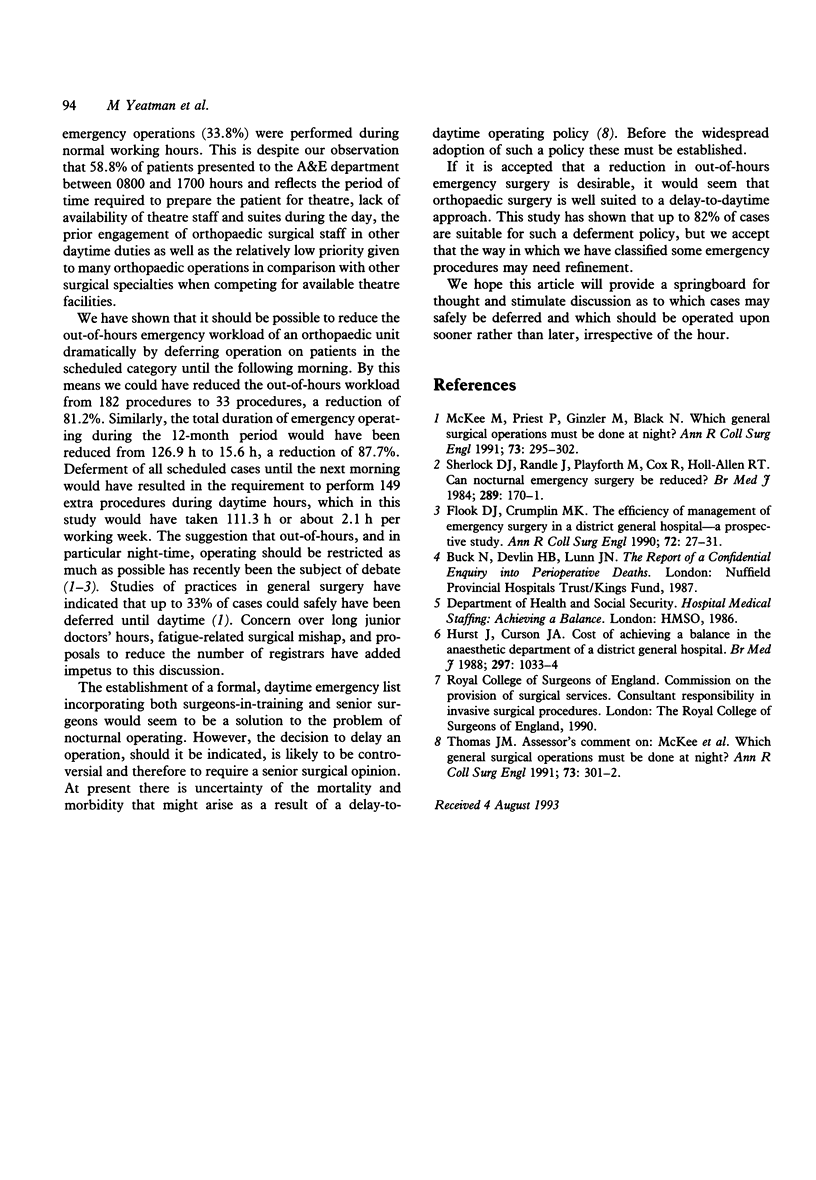Abstract
A 12-month retrospective study of emergency orthopaedic operations in a district general hospital was performed. There were 962 emergency admissions of whom 272 (17.7%) underwent emergency operation. The largest group consisted of those undergoing operation for femoral neck fractures (37.6% of the total). Despite 58.8% of the patients presenting to the accident and emergency (A&E) department between 0800 and 1700 hours, the majority (66.2%) were operated on 'out-of-hours'. Those patients undergoing emergency operation out-of-hours were allocated to one of three categories (emergency, urgent, or scheduled) depending on the nature and severity of their presenting condition. In the authors' opinion, 81.9% of the patients could have been appropriately classified as scheduled cases and that all out-of-hours operating in this group of patients could have been deferred until the following morning. This would have reduced the number of orthopaedic operations performed out-of-hours from 182 to 33. The operating time at night would have been reduced from 126.9 h to 15.8 h. The implications of this study are important in view of the currently proposed changes in the hours worked by surgical trainees, the CEPOD findings, and the Government's proposals outlined in Achieving a Balance.
Full text
PDF




Selected References
These references are in PubMed. This may not be the complete list of references from this article.
- Flook D. J., Crumplin M. K. The efficiency of management of emergency surgery in a district general hospital--a prospective study. Ann R Coll Surg Engl. 1990 Jan;72(1):27–31. [PMC free article] [PubMed] [Google Scholar]
- Hurst J., Curson J. A. Cost of achieving a balance in the anaesthetic department of a district general hospital. BMJ. 1988 Oct 22;297(6655):1033–1034. doi: 10.1136/bmj.297.6655.1033. [DOI] [PMC free article] [PubMed] [Google Scholar]
- McKee M., Priest P., Ginzler M., Black N. Which general surgical operations must be done at night? Ann R Coll Surg Engl. 1991 Sep;73(5):295–302. [PMC free article] [PubMed] [Google Scholar]
- Sherlock D. J., Randle J., Playforth M., Cox R., Holl-Allen R. T. Can nocturnal emergency surgery be reduced? Br Med J (Clin Res Ed) 1984 Jul 21;289(6438):170–171. doi: 10.1136/bmj.289.6438.170. [DOI] [PMC free article] [PubMed] [Google Scholar]
- Thomas J. M. Which general surgical operations must be done at night? Assessor's Comment. Ann R Coll Surg Engl. 1991 Sep;73(5):301–302. [PMC free article] [PubMed] [Google Scholar]


